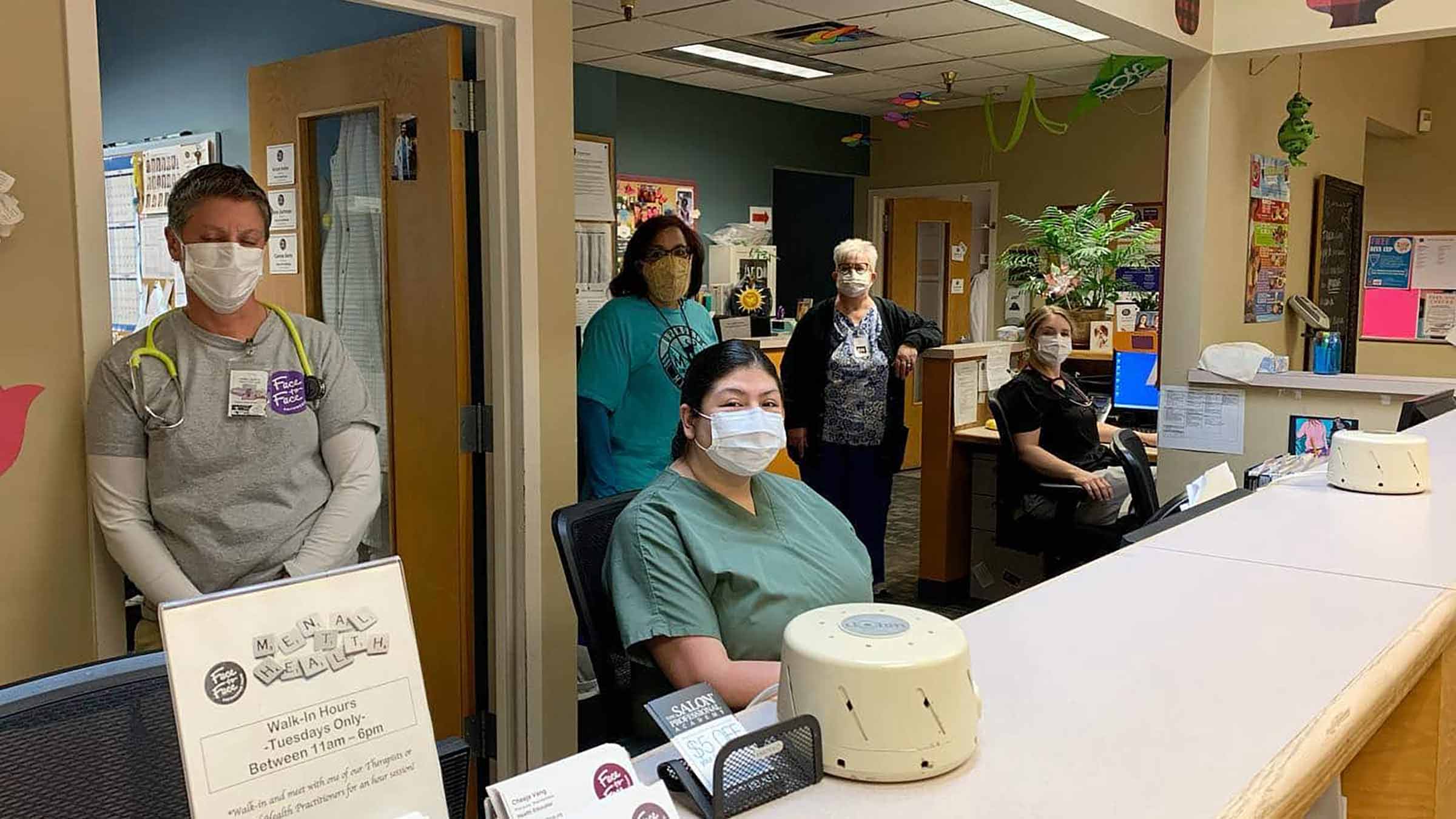
For nearly 50 years, Face to Face Health & Counseling Inc. has been serving youth in Ramsey County experiencing homelessness or who are at risk of becoming homeless. The nonprofit provides mental and physical health care, housing support, employment training, and other social services to young people ages 11 to 24. Last year, the organization served more than 2,500 youth.
When the COVID-19 pandemic hit, Face to Face staff knew they would be needed more than ever.
“As we dealt with this crisis, we knew we had to continue our essential, critical services, but in safe ways,” said Executive Director Hanna Getachew-Kreusser. “COVID-19 was a huge change for young people in particular- suddenly, they went from ‘normal life’ to not being able to interact with friends, family, and their community in the same way. We also knew to anticipate other unexpected impacts of the pandemic on our youth.”
The organization applied for and received an emergency third round grant from the Greater Twin Cities COVID-19 Response and Recovery Fund to deliver services in new and creative ways, expand current services, and serve vulnerable populations. This third wave of grants, totaling $700,000, was distributed to 52 local nonprofits, including 21 organizations not currently funded by United Way like Face to Face.
“The huge benefit of this United Way funding is the flexibility,” Getachew-Kreusser said. “It’s hard to predict what kinds of needs people will have or anticipate ways to do things when you’re in a pandemic. Because of United Way’s flexibility, we can focus on responding to needs rather than jumping through hoops to meet strict requirements.”
The organization is using the emergency grant to help youth in a variety of ways such as housing support, immediate basic needs, and physical and mental health.
“When the shelter-in-place order was issued what many people didn’t realize is that shelter is a privilege,” said Getachew-Kreusser. “Not all of our young people have a place to call home, and it’s important to remember that.”
During the pandemic, Face to Face has provided short-term shelter for up to 20 youth at a time in a hotel. They are also offering rental assistance and housing support in person, over the phone and via video chat. In addition, the nonprofit is running a supportive workforce training and development program, distributing personal hygiene and sanitary items at their SafeZone Drop-In Center and offering video visits at both their medical and mental health clinics.
“We know when youth are couch-surfing, sleeping in a car or homeless, they are especially vulnerable to health issues,” Getachew-Kreusser said. “We’ve also seen demand for mental health services increase, as young people have a lot of anxiety right now. They need a safe place to process what they are feeling and experiencing.”
Tricia is just one example of how Face to Face’s holistic, wraparound support during COVID-19 is touching lives. Tricia was living in her vehicle when she came to Face to Face. Staff were able to house Tricia in their hotel program, set her up with a job coach in the workforce development program, and provide her with clothing and essentials. Tricia has since completed her job training and began an internship at a local hotel which turned into a permanent position. Now, with her stable income, Tricia was able to move out of Face to Face housing and into an apartment she secured on her own.
As they navigate the challenges of COVID-19, Face to Face staff also see opportunities to rethink ways of providing services.
“We are focused on creating community as we deal with this crisis,” said Getachew-Kreusser. “This is a chance for us to really be there for our young people in multiple ways…and what a tremendous honor that is.”